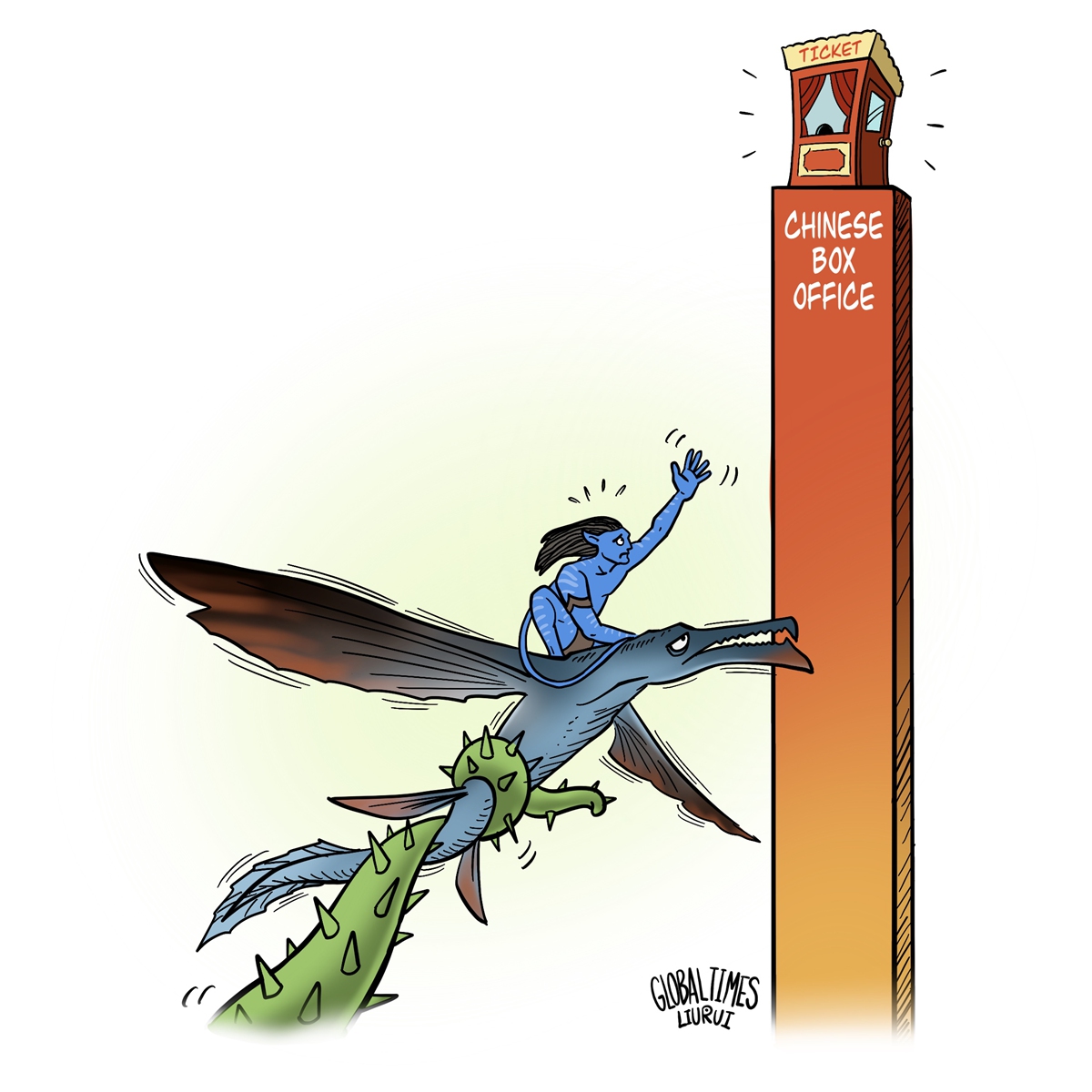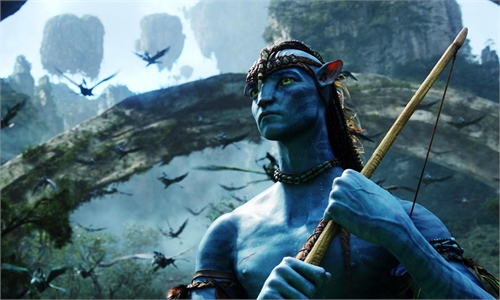ARTS / FILM
Rise of domestic films stalls Hollywood’s China romance

Illustration: Liu Rui/Global Times
The box office of James Cameron's sci-fi sequel Avatar: The Way of Water, or Avatar 2, reached 1 billion yuan ($144 million) at the Chinese mainland box office on Monday after three weekends on screen, according to ticketing platform Maoyan. However, compared to other top-earning films in the market, the film is moving slow, even when taking the pandemic into consideration.
Most Western media outlets have blamed the film's poorer-than-expected performance in China on COVID-19, but in fact, the box office takes of Avatar 2 in North America, Japan, and a few other markets have also failed to live up to expectations.
"Many Hollywood blockbusters including Avatar 2 have underperformed in the Chinese mainland film market in recent years mainly because the storytelling is no longer appealing to Chinese moviegoers," Shi Wenxue, a film critic based in Beijing, told the Global Times.
Indeed, Hollywood has been wooing the Chinese market for over a decade. China, the world second largest film market, has been considered vital for blockbusters seeking the top spot at the global box office.
What have Hollywood movies become in recent years? The biggest-budget films have mostly been superhero stories represented by the Marvel movies or long-lived franchises, like The Fast and the Furious, that try to cash in on moviegoers' nostalgia.
Academy Award-winning director, writer and producer Martin Scorsese also emphasized in an interview that he doesn't think "they [Marvel movies] are cinema."
This is not to say that all these commercial franchise movies are bad, but their popularity has indeed led to an increasing form of inertia.
Most commercial films are basically assembly-line productions. The frames are usually fixed and stories are simple to guess. Many Chinese moviegoers have admitted that they watch Hollywood movies like Avatar 2 just for the visuals.
Looking at the Hollywood films released in the Chinese mainland in recent years, almost all of them suffered from a "Waterloo" at the box office, leading industry insiders to believe Hollywood has not done enough to adapt to Chinese moviegoers.
The Chinese film market just started to explode when the first Avatar was released in 2009, and Chinese audiences, like audiences in other countries, were overwhelmed by the film's dazzling 3D special effects.
Over the past decade, however, Chinese moviegoers' appetites and tastes have grown and become refined. Additionally, commercial domestic films have been able to better understand Chinese audiences' needs and inclinations. These factors may mean that the "honeymoon" of Hollywood's China romance is over.
On movie-rating platforms, most moviegoers who were "unimpressed" by Avatar 2 said the visual effects still met the previous film's high standard, but they feel the plot was old-fashioned and far-fetched. Some were particularly tired of the "political correctness" in the story, which, combined with the model of commercial blockbusters tinted with "US" values, could explain why reviews have described it as "boring" and "oversimplified."
Disney's Mulan is a classic example of Hollywood's failure to truly grasp the tastes of Chinese audiences. Disney bent over backwards to create a live-action film that would make a splash in China, but it underperformed far below expectations by only grossing 278 million yuan in the Chinese mainland.
Chinese viewers said that it felt "wooden" and offensively inauthentic.
The impression in China is that Hollywood wants Chinese money, but doesn't want to genuinely listen to Chinese audiences.
Liu Zhenfei, an analyst for Maoyan, told the Global Times that good reviews have become the core factor driving movie consumption among Chinese moviegoers, who no longer just focus on franchise power or star lineups.
Chinese blockbusters such as Wolf Warriors 2 and The Wandering Earth have proved that the era of domestic films is coming.
"An excellent domestic film is a combination of China's splendid culture and traditional film with modern high technology," Cheng Hao, a film critic based in Beijing, told the Global Times.
The mainland film market is sure to continue to warm up in 2023 as COVID-19 restrictions become a thing of the past.
"The box office in 2023 could exceed the box office in 2022, and would be quite ideal if it can return to the 50 billion yuan of 2017," said Shi.
Chinese film analysts are confident that The Wandering Earth 2, which is set to hit the theaters on Chinese New Year on January 22, will beat Avatar 2 in the market
"The box office of Avatar 2 is predicted to reach no more than 2 billion yuan, while The Wandering Earth 2 could gross at least 2.5 billion yuan with the support of its premiere date during the Chinese New Year season," Jiang Yong, a film critic based in East China's Jiangsu Province, told the Global Times.

